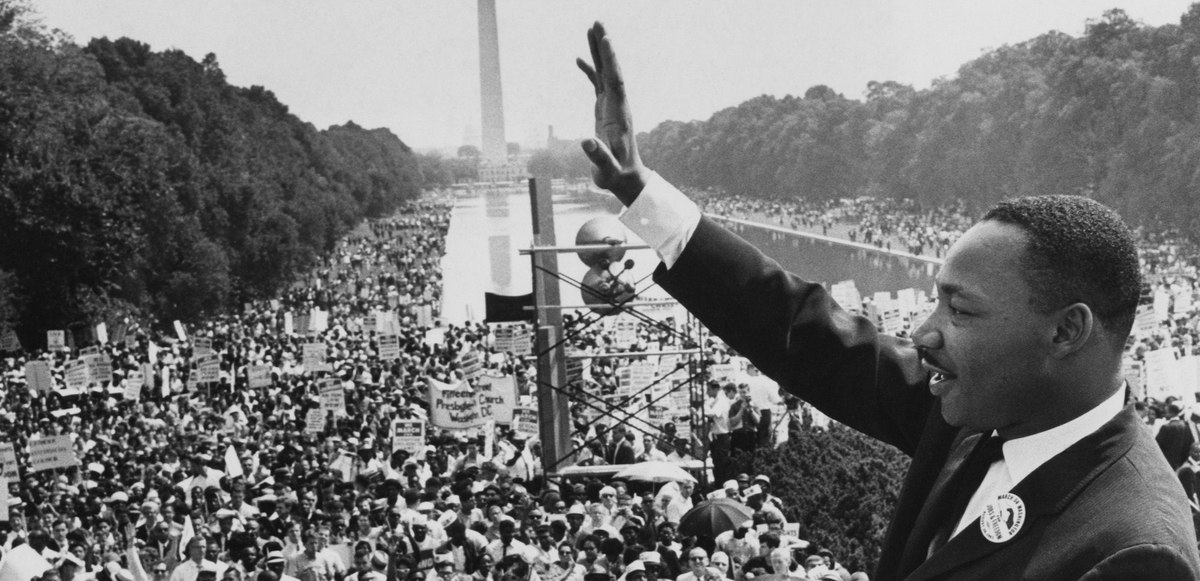As Americans commemorate the legacy of Martin Luther King Jr., discussions around civil rights and his legacy have been brought to the forefront. The latest Economist/YouGov Poll shows that Americans broadly agree with King’s push for civil rights. They disagree, along party lines and sometimes racial ones, about whether his project is complete.
A large majority of Americans say King succeeded in advancing civil rights and remains relevant today. Three-quarters of Americans (74%) say the “I Have a Dream" speech given by King in 1963 is relevant today to people of their generation, including 84% of Democrats and 69% of Republicans. A majority of Democrats and Republicans also agree that the protest marches led by King succeeded in advancing civil-rights legislation: 79% of Democrats and 66% of Republicans say that the protests sped up rather than slowed down progress toward civil rights.
Americans are more divided about the extent to which King’s dream of racial equality has been realized today. One-quarter of Republicans say “a great deal” of King’s dream has been realized, compared to only 10% of Democrats. Black Americans and white Americans largely agree on progress toward realizing his dream: 17% of each group say there has been “a great deal.”
Americans also are split by party on how big a problem racism is today. That question further divides Americans by race. Two-thirds of Black Americans say that racism remains a big problem in society, compared to only one-third of white Americans. Democrats are more than three times as likely as Republicans to say racism is a big problem.
— Linley Sanders contributed to this article
See the toplines and crosstabs from this Economist/YouGov Poll
Methodology: The Economist survey was conducted by YouGov using a nationally representative sample of 1,500 U.S. adult citizens interviewed online between January 8 and January 11, 2022. This sample was weighted according to gender, age, race, and education based on the 2018 American Community Survey, conducted by the U.S. Census Bureau, as well as 2016 and 2020 Presidential votes (or non-votes). Respondents were selected from YouGov’s opt-in panel to be representative of all U.S. citizens. The margin of error is approximately 3% for the overall sample.
Image: Getty











